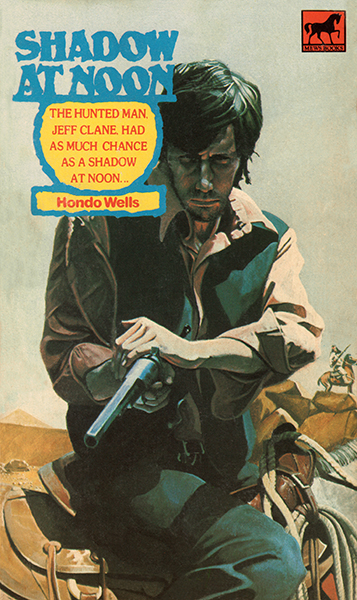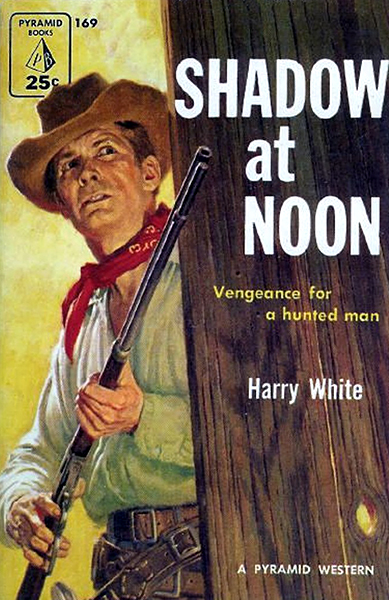Clane was cornered by Dardac, the bounty hunter. Dardac wanted the money for his hide and would stop at nothing to get it.
It was no use trying to tell the bounty hunter that he is innocent. To him Jeff Clane was nothing but a wild animal, something to be killed and hung over his saddle, another bounty to be collected…
This is not an overly complicated plot, even though it combines two much used western storylines – that of a man accused of a murder he did not commit and the theme of a greedy rancher wanting to chase homesteaders out of a valley he wants to claim as his own. What raises the standard is how this tale is told. The author’s lean prose and noir feel make this a very readable book.
Clane is guilty of killing the man he is accused of murdering, but he did so in self-defence. No-one seems to care about that though, not least the vicious bounty hunter Dardac. The book starts with a wounded Clane being tended to by a homesteader family whose attractive daughter, Patience, sees Clane as a way to escape her current lifestyle. Clane sees her as the answer to what he has been searching for but refuses to acknowledge these feelings as he knows death is stalking him and will claim anyone around him too. It’s also great to read about a man who has been shot not getting over it within a few pages, suffering from his wound throughout the story.
It’ll be no surprise to see Clane become involved in the range war, standing up against the powerful rancher and his gun-hands even though he wants to go and lead Dardac away from the people who’ve helped him. Things get even more complicated when the bounty hunter falls for Patience too and he won’t take no for an answer which leads to a brutal scene between the girl and Dardac. Most of the characters have to deal with both physical and mental pain and it’s the latter agonies that give this book its strengths.
Hondo Wells and Harry White are both pseudonyms, the man behind them being Harry Whittington. Shadow at Noon is not the best western Whittington wrote, but it is certainly worth reading.



